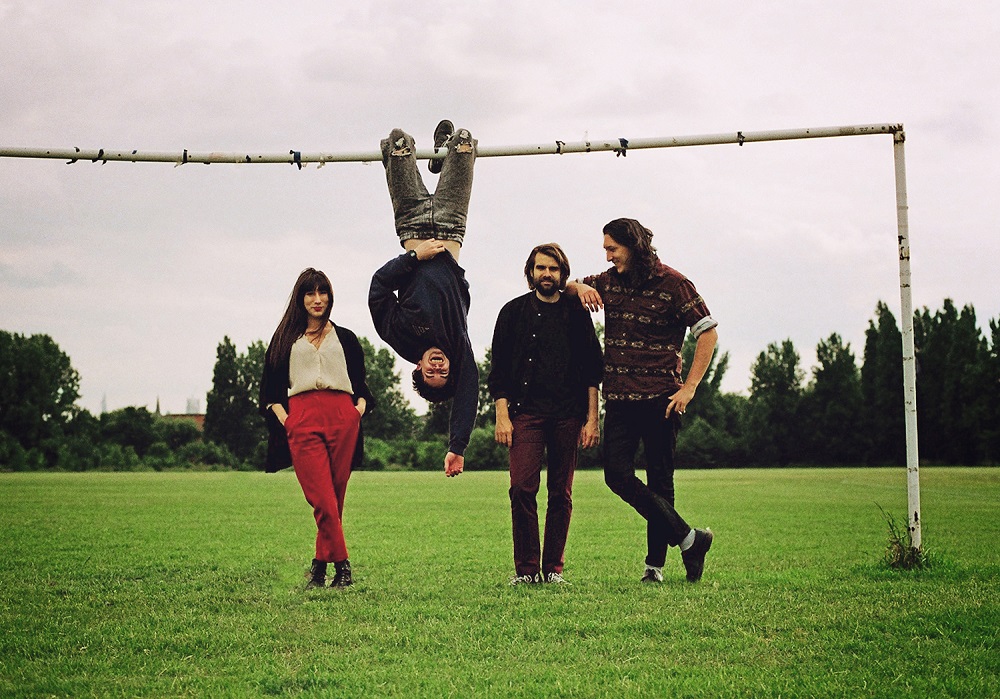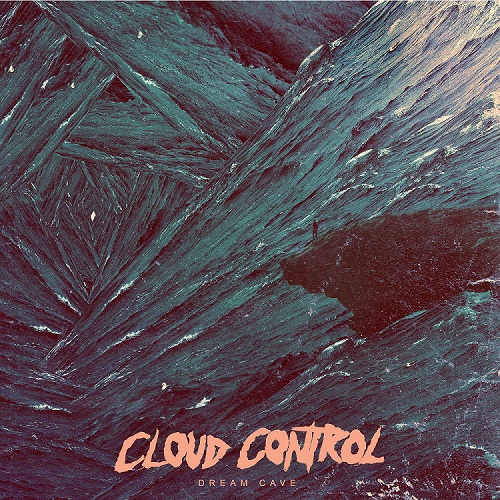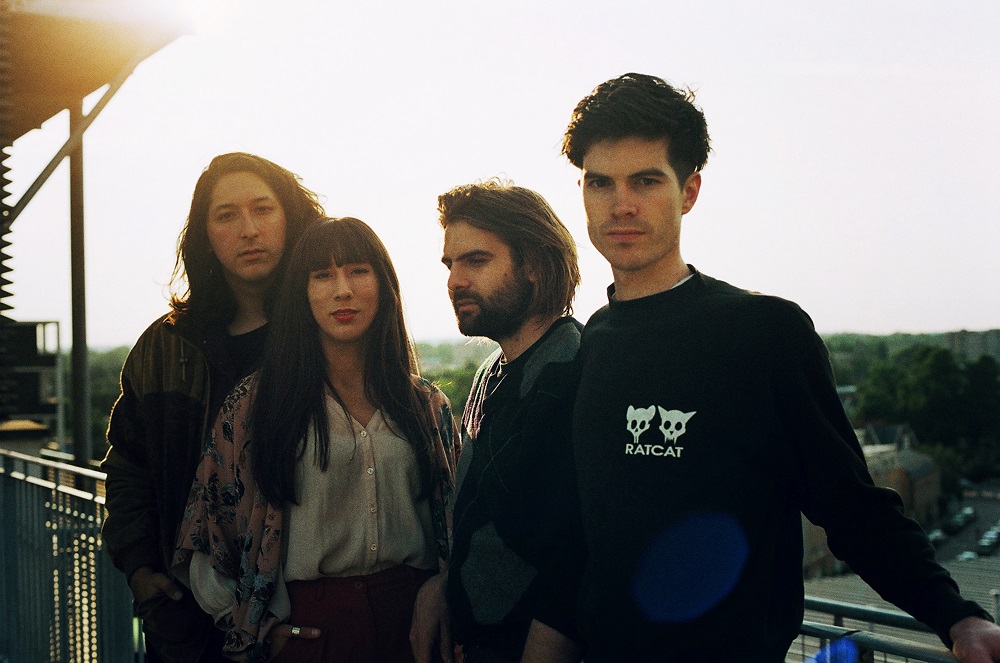Cloud Control: “We travelled round half of England looking for the perfect cave”
Rock, indie, folk, psychedelica; all of these words could be used to describe Cloud Control’s music. But after a pilgrimage to London all the way from Australia’s Blue Mountains, they’re a band that refuses to tie themselves down to a single genre or approach. New album Dream Cave follows a steady rise to prominence that has included an Australian Music Prize in 2011 for their debut, Bliss Release.
Ahead of Dream Cave‘s release, Sam Carter speaks to bass player Jeremy Kelshaw, who takes a refreshingly honest approach to his craft as he muses about home, fame, and the keys to staying relevant in today’s music industry.
Boar Music: How would you describe your music?
Jeremy Kelshaw: This is a conversation I have with the people at the airport check-in every time we fly! I end up saying we play in a rock and roll band; I reckon that’s true. What do you think?
BM: I was trying to describe it to someone earlier, and it’s really tough. My first reaction is to say alternative, but that’s kind of a broad term. It’s like indie, but a bit chunkier, I’d probably say.
JK: Yeah, a bit chunkier! A bit more of an edge, baby. [laughs]

BM: It’s the first word that came to mind! Was there any particular inspiration behind the band’s name?
JK: Not really. We were just playing a bit of word association, I guess. It’s the kind of thing that didn’t really give away too much about our sound. If you’re a metal band, your band name has to start with “D-E” [laughs]. We wanted to be a bit more open. We didn’t want to point ourselves down any particular road before we really got going.
BM: So you feel like you’ve got a bit more room for manoeuvre?
JK: Exactly, you’ve got room to move. I think that showed in terms of what we did before our first album. We did live demos, Beatles-style, in a mixing room of the Sydney opera house. Then we got some money together and did our first EP. We did a 7″ vinyl, a single to radio, and that moved us in kind of a pop direction. By the time we got to the album, we’d gone down these different roads, and we felt like we were ready to make the album artistically, that we’d experimented enough.
The difference this time around [while recording Dream Cave] was that we were working with our producer Barny [Barnicott] in a studio full-time. With his experience, he’d done so much that of course you’re going to find stuff that really resonates with your band. I think that allowed us to tap into his skills of going down really different roads.
Even though some of it’s quite varied, [the new record] still holds together and tells a story. It’s still a cohesive thing; we just had more of an ability to push stuff in different directions than we had on Bliss Release. I guess we had bigger, more powerful sounds to play with.
You walk into meetings and people talk about statistics based on Facebook and Twitter. It’s just the nature of the industry.
BM: Do you feel more confident with this second album?
JK: Yeah, I think so. It’s not like we’ve gone super crazy or anything, but I think we knew what we wanted out of the first record because we only wanted one thing.
BM: What was that?
JK: We made it sound vintage, I reckon. Mono, reverb; we used a bunch of different techniques to make it have that classic sound. That’s not to say that the new record is really shiny or brand-spanking new, but it just feels more current – in a good way.
BM: I listened to [new single] ‘Dojo Rising’ earlier, and I definitely noticed more of an electronic influence than there was on the first album.
JK: We’re balancing organic drums and a drum machine on that track. That happens on two or three of the tracks, but it’s not like it’s all over the album. That’s an example of the new direction that we haven’t used before. I think the two meld together well.
BM: Is that a balance that you think you’ll stick to?
JK: I think this album let us produce it in a way that we would get the best out of each song. So rather than try to make a particular sound or a particular ethos, we looked at the songs and were like “what does this song need to be the best it can be?” In the past, we’d take our sounds and put them through the sausage grinder until we got our album. This time, we’d get halfway through the recording process and go: “this track isn’t working; we need to start again and find new flavours for it to work.”
Are we going to do something like that in the future? Who knows. It’s something we were interested in at the time of recording, but who knows what kind of stuff we’ll be interested in at the time. If we do electronic, drum machine stuff, we’ll probably find a different way of melding the two together. We’re a live band – it’s where we live most of our lives – so we’re also conscious that we want to make a record that we enjoy playing live.
BM: You seem to have taken things step-by-step. Is there a big plan in all this, or do you just try stuff out and see where it takes you?
JK: [laughs] Yeah, we just get inspired and see what works. For this record, we did some of the vocals in this massive, old cave. We set up a speaker system and a bunch of mics and threw out different parts that we’d recorded in the studio into the cave so it sounded… cave-like, you know? You go back to the studio and meld the two together and all of a sudden, it’s Cloud Control playing in a cave! We travelled round half of England looking for the perfect one to record in.
We don’t want to be a band that gets a lot of attention and then fades away. We’re playing the long game.”
BM: You’re all from Australia, aren’t you?
JK: Yeah, we are. We all grew up 20 minutes from each other.
BM: Were you childhood friends then?
JK: Yeah, kind of. I didn’t know Alister [Wright, lead vocalist]; we went to different schools and I kind of met him through the band. I knew Heidi and Ulrich [Lenffer, sibling band members] growing up, and they knew Al as well.
BM: What’s the music scene like over there?
JK: It’s kicking off at the moment. When we were kicking around in our early days, playing a venue that held 1,500 people was a massive deal; only a handful of bands played that. At the moment, seeing the bands you used to play with playing those venues, it’s really inspiring.
I think Australia is so isolated. Sure, everybody reads and has the internet, but you don’t know what something’s like until you live somewhere. You move to the UK, and everybody who comes to London for the first time has a stereotypical West-London idea that everything’s beautiful like Mayfair or Chelsea. You start living here, and it’s not like that at all. It’s intense, it’s hectic, it’s horrible, it’s beautiful. It’s way more extreme than that, and that’s part of the appeal of staying here.
Of course Australia has its own problems. I think that’s why Australians travel so much, because every other country has others near it that they can get to know and learn from, but we’re this massive island. Unless you travel, you don’t get exposed to that kind of stuff that everybody else in the world does. It’s been really cool for us to experience that first hand.
BM: You mentioned that you’re living in London now. How’s that change been for you?
JK: We just want to go where we’re welcome; that’s how we plan things. As soon as radio stations start playing us, that kind of helps us to find tour stops in areas that already know about us a little bit.
We’ve always been a slow-burn band, I think. We never feel like we’ve gone backwards, but there’s never been one thing that’s changed our lives in a month. It’s always been a policy of: play a sweet live show, make a sweet record. We don’t want to be a band that gets a lot of attention and then fades away. We’re trying to play the long game, I guess.
When we toured with Supergrass years ago, we were super green at the time and didn’t have any money. We were like, “this is the best gig ever, let’s do this for the rest of our lives”. Talking to them, they seemed to be a band who were really deep into their career at the time, but still liked everything about the cycle of being a band. It was really cool to see that those guys still liked what they do.
BM: So they influenced you in a way?
JK: Probably not musically, but I respected what I saw of their approach. They just had a way of being really on it. They’re old hands; they’ve been there and done that. They went through Britpop and were still here. Blur and Oasis, they outlasted those bands. It’s cool to see people like that.
Being in a band is a very cyclical thing. You have to cycle through it as many times as you can for as long as you can, and then do it all over again.
BM: You’ve supported some big bands in your time…
JK: We did a show in Italy with Arcade Fire, and we did a full Australian tour with Vampire Weekend.
BM: Did anything stand out for you?
JK: Vampire Weekend played bigger venues than what Supergrass were doing. They had more crew members; they were a bigger operation. They were in a different part of their career – they still wanted to work really hard. Supergrass were still working hard, but they didn’t have any point to prove.
These days, every band has a point to prove because no-one buys records any more. If you want to be a new band these days, you have to want it. No-one’s doing you any favours and money is so tight. You’ve got to be good at what you do and you’ve got to want to do it.
I’ve really liked these last two months when we’ve finished the record; it’s like the calm before the storm. My favourite part of being in a band is playing live, so it’s cool to have this record and go out and play it live.
BM: Do you feel like it’s getting any easier?
JK: No; it just gets harder. You have to play bigger shows and there’s more people there who know about you. Everything these days is focused on the newest thing; people’s attention spans are so short. You walk into meetings and people talk about statistics based on Facebook and Twitter. It’s just the nature of the industry.
I think these days you have to reinvent yourself all the time and come up with something fresh so you don’t do the same thing in the same way. Maybe that’s what we’ve done on this record.
BM: What are your plans for the future?
JK: We all want to be in the band as long as we can. We’ve got touring plans until the end of the year and plans for festival season, as well as more tours in the UK, US, Australia, Japan and Europe. We’ll play loads while trying and do some more writing within that. It’s a very enjoyable, cyclical thing. You have to cycle through it as many times as you can for as long as you can, and then do it all over again.
BM: Until you become like Supergrass, and you don’t have to prove a point?
JK: I asked Gaz [Coombes, Supergrass vocalist] the same question. He gave the same answer; just keep touring, that’s the deal. Everybody works hard to play good shows, play bigger shows, play more shows. It’s the dream, right? [laughs]
Cloud Control release their new album, Dream Cave, on September 16th.



Comments